S.B. Stewart-Laing's Blog, page 23
April 5, 2013
Emotional Maturity is Physical Maturity
 Lots of speculative fiction includes non-human characters whose natural (or supernatural) lifespans are way beyond that of a human. This is a cool concept, and an area ripe for culture clash when humans show up. These long-lived creatures also seem to bear a permanent (or at least long-running) physical resemblance to teenage or young adult humans. Again, this could be an intriguing feature of their species, and definitely makes sense in a number of folklore and fantasy contexts.
Lots of speculative fiction includes non-human characters whose natural (or supernatural) lifespans are way beyond that of a human. This is a cool concept, and an area ripe for culture clash when humans show up. These long-lived creatures also seem to bear a permanent (or at least long-running) physical resemblance to teenage or young adult humans. Again, this could be an intriguing feature of their species, and definitely makes sense in a number of folklore and fantasy contexts.What doesn't make sense, however, is that these characters seem to have a natural affinity for teenage behaviour. They act like angsty adolescents. They hang out with-- and often romance-- teenage characters.
This, in and of itself, could be salvageable. Maybe this alien species lives for 5,000 years, and between the ages of 600 and 900 go through a developmental period analogous to human adolescence. In that case, it makes perfect sense that these individuals would prefer humans who were at a similar developmental level.
On the other hand, there are species for which such a timeline doesn't make sense, unless you work in some additional explanation. Most prominently, a 19-year-old who gets turned into a vampire and wanders about for 150 years should not be stuck in a 19-year-old mindset unless this is a feature of vampires in your world. Even if they don't physically age, they'll accumulate a lot of life experience.
This brings me to my final point. Even if you have a long-lived species which experiences it's own equivalent of being a teenager, these characters will still have lived a much longer time than their human counterparts, and thus will have a very different perspective on things like the passage of time, how significant events are to the 'big picture', how many experiences they've had, etc. This should really cause a lot more issues as far as their relationships (of all kinds) with humans.
Published on April 05, 2013 02:22
April 4, 2013
Debate and Switch
 Ambiguity is hard to write. The human urge to classify and simplify makes it challenging to create villains who might have a point, or heroes who don't always do the right thing, or situations with no clear right answer. But it's also tempting, because such situations and characters up the ante on the suspense and the reader's emotional engagement, and give you a truly compelling story.
Ambiguity is hard to write. The human urge to classify and simplify makes it challenging to create villains who might have a point, or heroes who don't always do the right thing, or situations with no clear right answer. But it's also tempting, because such situations and characters up the ante on the suspense and the reader's emotional engagement, and give you a truly compelling story.I'm also sure you've all encountered a book or movie or TV show which starts out with a morally thorny problem or intriguingly questionable characters, and then throws in a plot twist that turns the whole thing black and white, or at least offers a clear 'right' answer.
Why do we authors do this?
Maybe it's because we don't know the right answer, but feel a need to provide the readers with an answer-- or just wrap up the story. Maybe we get cold feet at the thought of offending our audience, or allowing our characters to do something morally questionable. It's probably some combination of those factors, but the cure is the same:
Remember you don't have to know the right answer. Your characters can do things that make the reader cringe, and that's okay. Your story may simply highlight that sometimes there are situations in which no painless solution is available, and your characters are merely doing the best they can against overwhelming odds. It's okay to leave your readers thinking, rather than presenting them with a tidy ending.
Published on April 04, 2013 01:55
April 3, 2013
CSI Effect
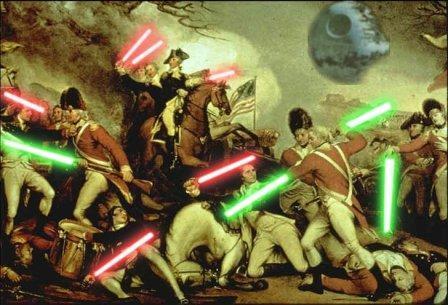 'Tomorrow's only what the past dragged in.'
'Tomorrow's only what the past dragged in.'--Jez Lowe
Humans have used stories as an exceptionally 'sticky' way of transmitting information since the beginning of history. This is probably one of the key things which allowed us to flourish as a species. In modern times, we have an unprecedented ability to spread our stories-- and with that, an unprecedented ability to spread bullshit. And when a lie gains traction as accepted general fact, it's not pretty.
This seems fairly hypocritical for me to say this as someone who writes historical fantasy and alternate history. Michael and I are, for large parts of our story, actively thumbing our noses at reality. But a good part of this is driven by our conscious choice to present a recognisable fantasy world that shares some big commonalities with real life but is not being presented as historical fact.
The problem with presenting historical fiction as fact is that our understanding of history shapes our perspective on current problems. Although there is a strong tendency among privileged groups to paint history as a series of inevitable events which are now done and completely divorced from the present, that's simply not true. And if you think that public opinion isn't influenced by media...there have been legions of studies that prove we learn a vast amount of facts and nonsense from stories (or for those who don't want to read said depressing studies, just watch Charlie Brooker's series on the subject), and that this has a tangible effect on our collective behaviour.
If you want the flavour of a historical setting but not the attendant research or responsibility, that's fine--you've got endless choices for creating a fantasy world or a alternate timeline that lets you have the best of both.
Published on April 03, 2013 01:14
April 2, 2013
Burger Fool
 Perhaps as a reflection of how homogeneous the entertainment industry--including literature--Fictionland seems to hold a disproportionate level of scorn for messy, minimum-wage jobs (with the exception of the Almighty Janitor). Characters are either striving to do something acceptably artistic and/or white-collar, or are heaping scorn on those who seem content to continue flipping burgers.
Perhaps as a reflection of how homogeneous the entertainment industry--including literature--Fictionland seems to hold a disproportionate level of scorn for messy, minimum-wage jobs (with the exception of the Almighty Janitor). Characters are either striving to do something acceptably artistic and/or white-collar, or are heaping scorn on those who seem content to continue flipping burgers.Now, if you're writing about modern life in a developed country, those in-universe attitudes may simply be a realistic reflection of attitudes in that setting. And if we restrict our discussion to the specific image of a teenager working the fry station, the trope is a solid one-- it's a job in which candidates are hired with an eye to the high turnover rate, and where those in such positions often view the jobs as temporary. But in the background lurks the notion that only specific career types are aspirational and everything else is for suckers.
I still wouldn't be too irritated-- after all, portraying classism is realistic-- except that the attitude that straightforward manual labour or service jobs are something any hero will turn up his nose at has leaked into settings. In many cases, the character lives in a setting where manual labour is not only the default job, but necessary for survival. While it's believable in some circumstances that a character would internalise social views on their position, it comes off as weird when the character has not seen any alternatives to their current occupation.
Even if they do understand that their occupation or social class (these may very well be intertwined) are looked down on by others in their society, they should also prioritise their own survival. I'm boggled by the characters, raised as farmers or servants, who shirk their chores when they know that the result is potentially starvation for their whole family.
In short, what bothers me isn't the character's attitude-- although the subtle details of their thought process can certainly determine how sympathetic they are. It's the idea that turning up one's nose at manual labour or unskilled work is an automatically heroic quality. Cheering for the character's aspirations and hard work is one thing, but cheering for their entitled attitude about work is another.
Published on April 02, 2013 02:28
April 1, 2013
Aluminium Christmas Trees
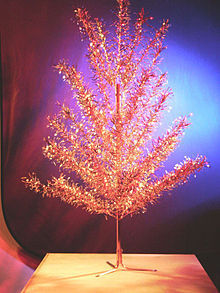 'Sometimes you'll know your material cold — and you'll be absolutely correct — but your readers' previous experience disagrees. [...] It's not much comfort to be right if your readers toss the book aside because they're convinced you're talking through your hat.'—Leigh Michaels, On Writing Romance
'Sometimes you'll know your material cold — and you'll be absolutely correct — but your readers' previous experience disagrees. [...] It's not much comfort to be right if your readers toss the book aside because they're convinced you're talking through your hat.'—Leigh Michaels, On Writing RomanceWriting historical fiction is an exercise in discovery. The one problem for writers, however, is that reality often insists on being annoyingly unrealistic. Personally, I find these tidbits of knowledge fascinating. As a writer, I often find them frustrating, as Michael and I struggle to maintain historical realism without wrecking reader suspension of disbelief. Given that we're already asking them to roll with faeries, magical gin bottles, and the occasional lake monster, we don't have a lot of wiggle room. On the other hand, we're pretty fixated on representing historical fact when when can (more on that Wednesday).
So far, we've been asked by readers about the following things, which they believed to be anachronisms.
Newspapers (By the 1690s, London had several dozen daily papers, as well as weekly papers, and a variety of newsletters hawking dodgy products, quasi-legal entertainment, or their author's political views)Dr. MacPhearson's medical kitRobert's reading abilities (in 1740, Scotland's literacy rate was 75%, due to the extensive public education system)Alfred's glasses (corrective eyeglasses were invented in the late 13th century, and got traction during the 14th)Various swearwords (one 18th century travel writer said 'if cities were named by the first word one heard upon entering them, London would be called 'damnit')And that's after we left a lot of political rhetoric out because it sounded too over-the-top, as well as eerily modern!
To be honest, I have no real system for setting the balance, or finding another way to address this problem. If any of you lovely blog readers have any thoughts, I'd be delighted to hear them!
Published on April 01, 2013 02:34
March 31, 2013
A-to-Z 2013!
Starting next Monday, it's April A-to-Z, brought to you by the lovely Damyanti and friends. Once again, I will be blogging my way alphabetically through TVTropes, bringing you some of my favourite (or least favourite) picks for each letter. You can view the original trope info by entering the post title as a search term on the site.
And for those of you who celebrate it, happy Easter!
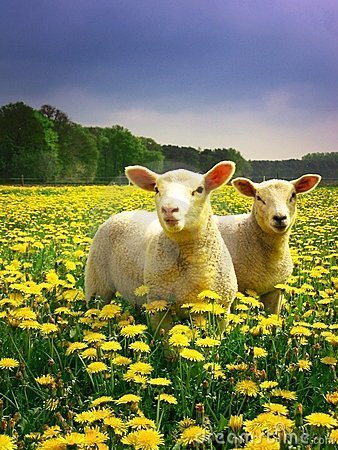
Published on March 31, 2013 07:23
March 29, 2013
Backstory, Environment, and Skill Sets
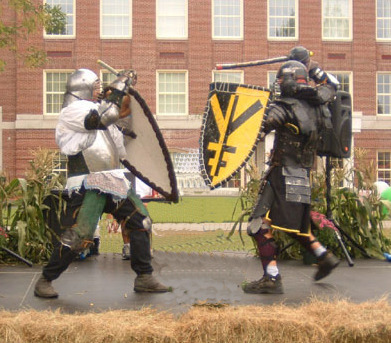 It makes sense that a character-- particularly a relatively young one-- will have acquired a set of life skills which are relevant to their environment. This doesn't just mean the cool skills either. This also means that the character has had limitations imposed on their learning by the social, economic and environmental structures around them. A big offender for characters with improbable skill sets is psudo-medieval fantasy settings, though the problem crops up in to any setting with a huge range of social classes, or a multitude of cultures or environments.
It makes sense that a character-- particularly a relatively young one-- will have acquired a set of life skills which are relevant to their environment. This doesn't just mean the cool skills either. This also means that the character has had limitations imposed on their learning by the social, economic and environmental structures around them. A big offender for characters with improbable skill sets is psudo-medieval fantasy settings, though the problem crops up in to any setting with a huge range of social classes, or a multitude of cultures or environments.Part of the problem may stem from the unvoiced assumption that everyone shares some common skill sets. In a culturally homogeneous and egalitarian setting, this may well be true (this may also be true of small casts-- presumably everyone on your elite space exploration team has taken a crash course on space suit survival skills). But in many settings, it doesn't make sense for characters to have a knowledge overlap. To use a modern example, a 16-year-old who grew up on a farm in upstate New York might know how to drive a tractor, while a 16-year-old from Manhattan might not even have a driver's license; inversely, the farmer might be overwhelmed by the complex public transit system which the city dweller has been navigating since childhood. And that gap is without throwing in the implications of factors like gender roles or social class.
Think about what skills would have been essential to your characters, and what learning opportunities may not have been available, in the context of your world (or, as Limyaal put it, 'why would a wise old mentor just wander into town and teach a random peasant?').
If your character absolutely must have a skill that doesn't obviously come out of their background, you need to do one heck of a job explaining it if you're going to hang on to the reader's willing suspension of disbelief. Now, these do crop up naturally in particular settings (next Monday's post will address the phenomenon) but even then, there has to be an established context.
Published on March 29, 2013 03:35
March 27, 2013
Writing Queer Relationships, Part II
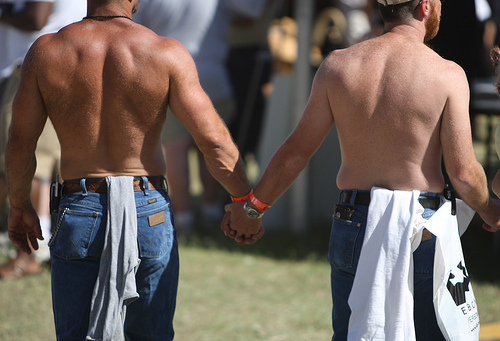 The other problem queer couples in Fictionland face, besides all the Fred Phelps clones who seem to have fallen out of the time vortex into their fantasy world/historical setting/future spaceship is the Bad Slashfic Syndrome. The first symptom is an incessant need to mess up established characterisation to get your two queer characters together. This is followed by the shoehorning of said characters into gender and dominance roles (usually a submissive femme and masculine dominant). Finally, bad sex scenes set in.
The other problem queer couples in Fictionland face, besides all the Fred Phelps clones who seem to have fallen out of the time vortex into their fantasy world/historical setting/future spaceship is the Bad Slashfic Syndrome. The first symptom is an incessant need to mess up established characterisation to get your two queer characters together. This is followed by the shoehorning of said characters into gender and dominance roles (usually a submissive femme and masculine dominant). Finally, bad sex scenes set in. It seems self-evident that non-hetero people are, well, people, complete with unique personalities and interests and backstories which have little or nothing to do with their orientation*. More importantly, just because a relationship involves two people with the same gender identity and/or chromosome pairing, it doesn't mean the usual rules of partner selection don't apply-- people bond over shared interests and experiences, and mutual attraction. One's pool of potential partners might be smaller, but that doesn't mean that any two people with a compatible orientation will be a good pair.
Which brings us to the 'faux fanfic' problem. In slash fanfic, the driving force is creating scenes where the two characters get to screwin'. This can mean messing with characterisation a bit so that the hot folks end up as a hot couple. In an original story, however, you're writing the characters from scratch (I hope!), so you can make the characters as good (or awful) a match as you want. If your end goal is to write a romantic story with the two leads getting together, make sure you write their compatible traits into their original characterisation.
This messing up of established characterisation can also be the product of trying to shove the characters into an established set of binary gender roles. A couple does not need to have a 'masculine' and a 'feminine' member**, or a dominant and a submissive member. Any combination of gender expressions and power relations is possible, so just go with what's appropriate to your characters.
Finally, if you're going to write the sex scenes, please research how same-sex couples get it on (and seriously, if you can't look up the requisite positions, etc. without having a giggling breakdown, you are not in any shape to write a sex scene). Try a queer sex-advice book or website-- porn is probably the worst way to do your research, at least as far as looking up how people bone in real life. There's no faster way to ruin the mood and the reader's suspension of disbelief than to have some impossible sex positions or improbable anatomy.
*In all fairness, I once lived with someone whose orientation was her entire identity-- her only interests were (as far as I could tell) gay rights, naked women, and feeling ambiguously persecuted.**Usually using modern Western gender roles as a template
Published on March 27, 2013 07:59
March 25, 2013
Writing Queer Relationships, Part I
 In Fictionland, a surprising number of characters seem to undergo a personality transplant when they fall into True Love. However, this seems to present a particular problem for any characters who enter a relationship with someone of their own gender. These relationships also have a tendency to fall into a warped parallel universe where all their problems stem exclusively from the gender of the characters involved, rather than the sorts of relationship problems which occur in real life.
In Fictionland, a surprising number of characters seem to undergo a personality transplant when they fall into True Love. However, this seems to present a particular problem for any characters who enter a relationship with someone of their own gender. These relationships also have a tendency to fall into a warped parallel universe where all their problems stem exclusively from the gender of the characters involved, rather than the sorts of relationship problems which occur in real life.Now, this is not to say that your same-sex couple won't potentially face some extra challenges. Perhaps people in your story's setting aren't too keen on such relationships. If that's the case, the reason needs to make sense in-universe. Maybe your fantasy country got devastated by a magical plague and any non-procreative sex is frowned upon due to the dire need to repopulate. Maybe there's a religious issue (though this should be fairly thought-through and make sense in cultural context). Even then, your characters should have normal relationship issues, as well as outside pressure.
That said, remember that homophobia does not have to be the default. If you're writing a fantasy world from scratch, you make the rules. It might make complete sense for the citizens of your fictional society not to care about the genders of the people in a relationship (or even to care about gender, or two-person monogamous relationships... maybe they're all non-gendered and form polyamorous multi-sex family groups. It's your magical/alien/fantastic species, after all).
Furthermore, if you're writing historical fiction, do your research. Attitudes towards same-gender relationships have varied widely, and even within the same time and place, factors such as religion, race and social class may play into people's attitudes. For example, in 18th century England, gay men were persecuted among the upper classes, but tolerated by the poor and working class (lesbians were ignored by everyone). In ancient China, having a same-sex 'piece on the side' was okay, as long as you procreated and passed on the family name. A good research session can turn up some subtleties which will make for a much more nuanced setting than recycling the clifnotes version of modern Western homophobia.
Published on March 25, 2013 07:12
March 22, 2013
Environment and Expectations
 In her brilliant (and sadly now defunct) fantasy rants, author Limyaael often mentioned her frustration with characters who expressed shock and horror at things like arranged marriage and chores that should have been part of their everyday consciousness. What she's skirting around-- whilst addressing other topics-- is that the characters should be products of their accumulated knowledge and upbringing, not independent of it.
In her brilliant (and sadly now defunct) fantasy rants, author Limyaael often mentioned her frustration with characters who expressed shock and horror at things like arranged marriage and chores that should have been part of their everyday consciousness. What she's skirting around-- whilst addressing other topics-- is that the characters should be products of their accumulated knowledge and upbringing, not independent of it.We usually look at worldbuilding from the outside. We create a fantasy world, or research a historical period or a distant country, but chart it's customs and history and daily life as outsiders for whom many things seem strange. However, in our position as the observer, we both incorrectly evaluate the world through our own 21st century morality, and forget that the characters won't be surprised by things that differ wildly from our experiences.
This shows up in two prominent ways. First, there is the orphaned ideology-- ie, a philosophy that a character adopts out of nowhere; second, there is the perpetual alien, a character who is as shocked at their native culture's customs and physical environment as someone who was parachuted in from the author's world.
The orphaned ideology is often Anglo-American 20th-century flavoured feminism, but can also manifest as ideas about class equality, economics, or race relations which appear in the character's head out of nowhere. While it makes sense for someone to notice they are receiving the short end of the stick due to their race, gender or whatnot, it's very weird when they develop fully-formed notions about women's rights or Marxism without having some in-universe buildup (if there is already a group of women publishing pamphlets about how they should be allowed to vote, it makes more sense for the character to pick up on this material and perhaps take it further). And it's critically important for the buildup to make sense in the story's world-- the social forces that created the Civil Rights Movement of the 1950s and 1960s won't be present in a fantasy world, which means thought and action on such issues may take a different direction.
Then there's the character who, like Douglas Adam's birds, are perpetually surprised by typical events around them. (If the character has anterograde amnesia, carry on). Now, this is different than a character having culture shock from experiencing a different aspect of their native society. It would be understandable for someone who has suddenly changed social classes or locations (particularly in a very provincial society) to find new and unexpected things around every corner. But when someone from, say, a society in which arranged marriage is the norm and love matches are practically unheard of expresses shock and horror at her own impending nuptials (and becomes suddenly obsessed with a love match), it wrecks the suspension of disbelief. Unless the character is indeed a time traveller plopped into another century, in which case, carry on.
Published on March 22, 2013 07:03



